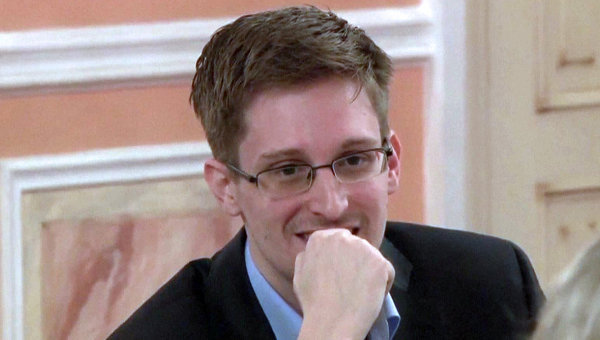MOSCOW, January 29 (RAPSI) - A committee within the Strasbourg-based Parliamentary Assembly of the Council of Europe (PACE) plans to invite NSA whistleblower Edward Snowden to its headquarters in April to debate mass surveillance and whistleblowing with US officials, PACE announced Wednesday.
According to the statement, “A committee of [PACE] is to invite whistleblower Edward Snowden and US officials to Strasbourg to debate the two themes of mass surveillance and whistleblowing at linked public hearings in April.”
Citing Rapporteur Pieter Omtzigt of the Committee on Legal Affairs and Human Rights, the statement explains that Snowden could be invited to summarize the revelations he has made up to this point, and perhaps to make new ones. Likewise, US representatives could be asked to answer to the truthfulness of his statements, and in turn to justify the surveillance methods exposed.
He added that a separate whistleblowing hearing could be held the same day, wherein Snowden could provide insight into his reasons for going public with revelations about his former agency, and US officials would have the opportunity “to make the case that Mr Snowden was a criminal.”
A draft introductory memo was released publicly on Tuesday by PACE’s Committee on Legal Affairs and Human Rights. As explained by its text, such introductory memos generally present the scope of the pending report or reports, the current circumstances, and the fact-finding methods to be used during the completion of the report.
Omtzigt, its author, explained in the memo that after having been appointed in November to serve as rapporteur on the two related topics of “massive eavesdropping” and whistleblowing, he sought authorization from the committee to invite Snowden to a hearing in Strasbourg.
Snowden, a computer specialist and former contractor for the NSA, was the focus of international attention over the summer after he leaked to the media classified evidence of US government surveillance programs.
On June 14, the US authorities charged Snowden under three articles, each of them stipulating punishment of up to 10 years in prison. Two of the charges were brought under the 1917 Espionage Act.
Having initially fled to Hong Kong, he arrived in Moscow on June 23. On August 1, after an extended stay in a Moscow airport, he was granted temporary asylum and is now living at an undisclosed location in Russia.
Noting the difficulty Snowden might face with traveling in light of the US charges standing against him, and the possibility of a US extradition request to France, Omtzigt suggested in the memo: “It will be ultimately up to Mr Snowden, in agreement with his Russian hosts, to decide whether he feels confident to accept such an invitation. As fallback, we could invite Mr Snowden to participate in the hearing by way of teleconferencing, or the Committee could authorise me to visit him in Russia and report back to it.”



